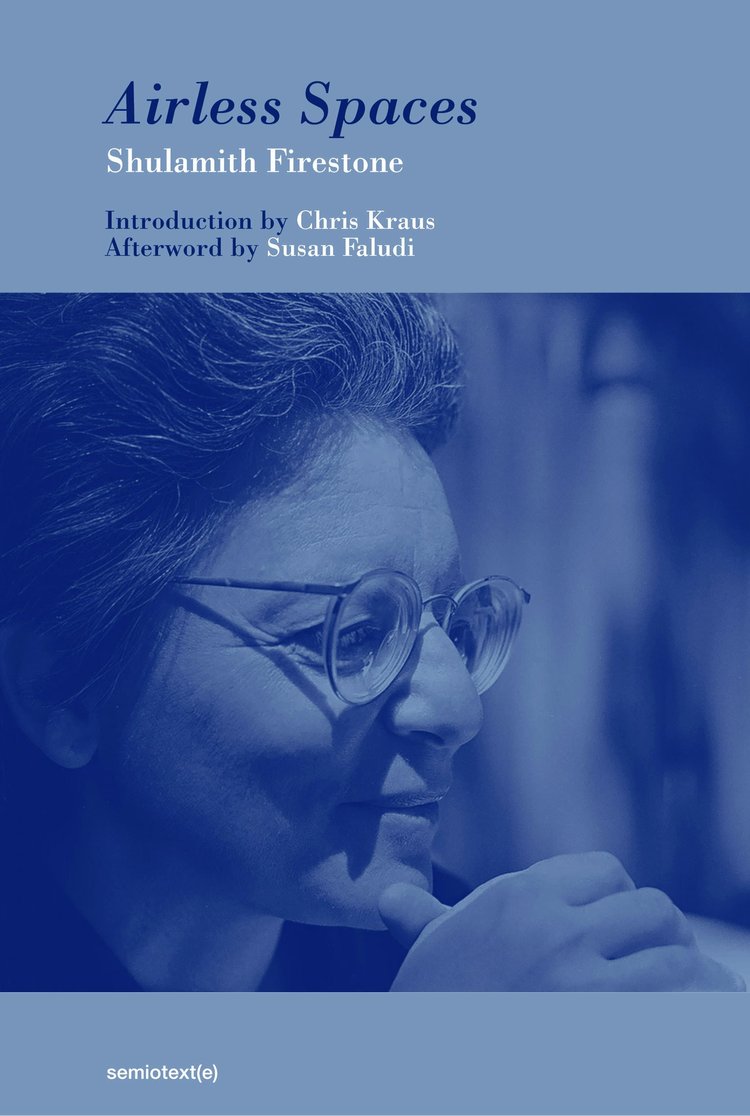In the decades after The Dialectic of Sex, Firestone experienced a decline in her mental health, leading to periods of institutionalization and fleeting recovery, and withdrew from the women’s movement. Her only other book, Airless Spaces, was published in 1998 by the small radical publisher Semiotext(e); it was reissued earlier this year, with an introduction by Chris Kraus and an afterword by Susan Faludi. A novel in shards, Airless Spaces tells the stories of people who spend their days in and out of mental hospitals, afflicted by poverty, bureaucracy, and stigma. If The Dialectic of Sex is a euphoric glimpse of a distant UFO, Airless Spaces is a chemtrail latticing a gray sky, haunting those below. Its table of contents attests to its resolute gloom, with sections titled “Hospital,” “Post-Hospital,” “Losers,” “Obits,” and, finally, “Suicides I Have Known.” Firestone drifts between memoir and fiction; there are no sharp turns. Airless Spaces might easily be read as the scraggy roman à clef of an ex-revolutionary, defined by its lack of engagement with the former work of its author. (One imagines an eager critic holding each chapter up to the light, like a dollar, to search for a hidden watermark of politics.) But the difference between The Dialectic of Sex and Airless Spaces is not the difference, if there is one, between a radical feminist and a madwoman; it’s the gulf between soothsaying and surviving the present in the very society you once dreamed of overthrowing.
The chapters are mostly character sketches, often titled after their subjects’ full names, as if mimicking a medical file or a newspaper article. Some use the names of real people, but many seem to be aliases for Firestone herself. In its fragile totality, the book articulates the small, grave days of those persons whom the culture most often turns away from. In doing so, it steps into an unusual, and at times uncomfortable, mode of narrative, featuring weeks that are circular, protagonists who are vacant, and endings with no resolution. There is political possibility here, but its manifestations are stranger and lonelier than a revolution.
Firestone studied painting and made portraits in her youth, and Airless Spaces evokes that practice: stark images, boxed and framed, wrested from context yet stylized by the traces of a single lived instant. The stories sit like figures in a painting by Alice Neel, if all the camaraderie in Neel’s work were drained out: staring straight ahead, some steely, some yearning, countenances slightly askew, drawn with thick streaks of candor, elbows jutting sideways. The furniture always seems a little rickety; the room is only half filled in. The world beyond their immediate, urgent aura is blank as snow.
